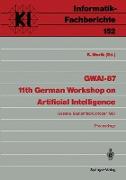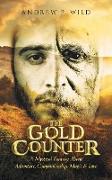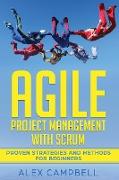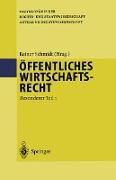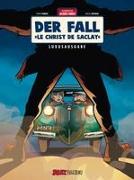GWAI-87 11th German Workshop on Artificial Intelligence
BücherAngebote / Angebote:
Es wurde gezeigt, daß das Bootstrap-Problem bei der geometrischen Szenenrekonstruktion eine wichtige Rolle spielt und daß das Problem der physikalischen Korrespondenz als eine spezielle Sichtweise des Rekonstruktionsproblems gesehen werden kann. Weiterhin wurde ein wissensbasier ter Ansatz vorgestellt, um das Bootstrap-Problem zu umgehen. Literatur Bajcsy + Lieberman 76 : Texture Gradient as a Depth Cue, R. Bajcsy und L.1. Lieberman, Computer Graphics and Image Processing 5, 52-67 (1976). Bartsch u.a. 86 : Merkmalsdetektion in Farbbildern als Grundlage zur Korrespondenzanalyse in Stereo-Bildfolgen, Thomas Bartsch, Leonie S. Dreschler-Fischer und Carsten Schröder, DAGM-86, pp. 94-97. Binford 81 : Inferring Surfaces /rom Images, Thomas O. Binford, Artificial Intelligence 17, 205-244 (1981) siehe auch: Brady 81, pp. 75-116. Blostein + Ahuja 87 : Representation and Three-Dimensional Interpretation of Image Texture: An Integrated Approach, Dorothea Blostein und Narendra Ahuja, ICCV-87, pp. 444-449. Brady 81 : Computer Vision, J.M. Brady (Rrsg.), North Holland Publ. Comp. Amsterdam 1981, reprinted /rom Artificial Intelligence 17 (1981). Clocksin 78 : Determining the Orientation of Surfaces /rom Optical Flow, W.F. Clocksin, Proc. AISB/GI-78 on Artificial Intelligence, Hamburg, July 18-20, 1978, pp. 73-102. Crowley 84a: A Computational Paradigm for Three Dimensional Scene Analysis, James 1. Crowley, Technical Report CMU-RI-TR-84-11 The Robotics Institute, Carnegie Mel10n University, Pittburgh, PA (April 1984). Dreschler + Nagel 82b : Volumetrie Model and 3D-Trajectory of a Moving Car Derived /rom Monocular TV Frame Sequences of aStreet Scene, L. Dreschler und H.-H. Nagel, Computer Graphics and Image Processing 20, 199--228 (1982).
Folgt in ca. 5 Arbeitstagen
